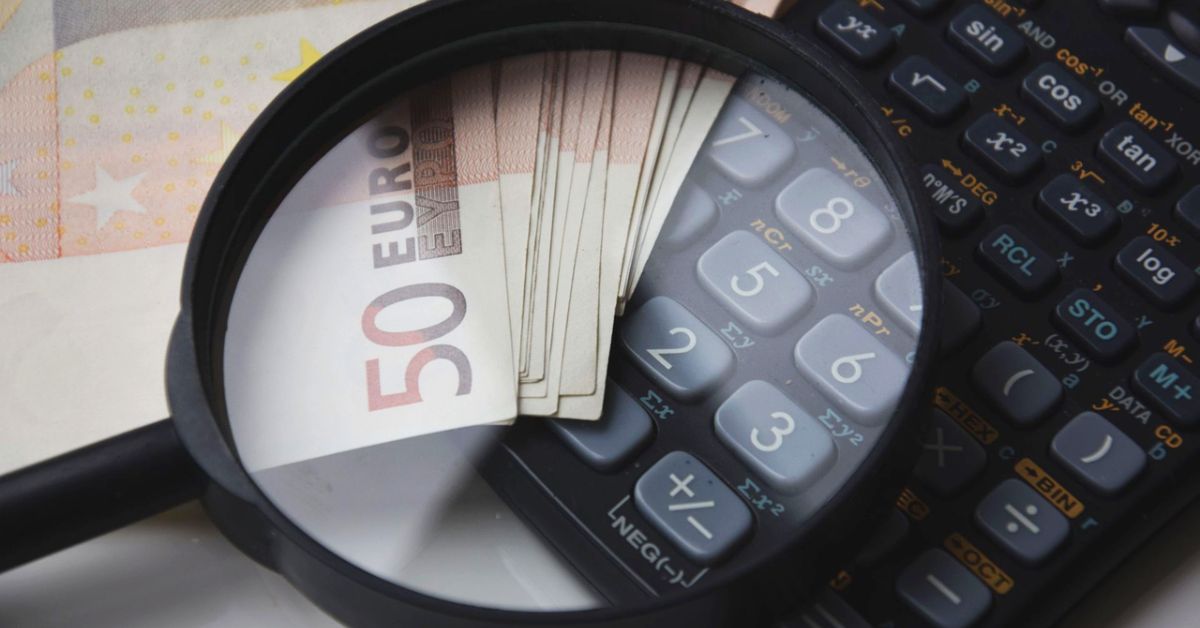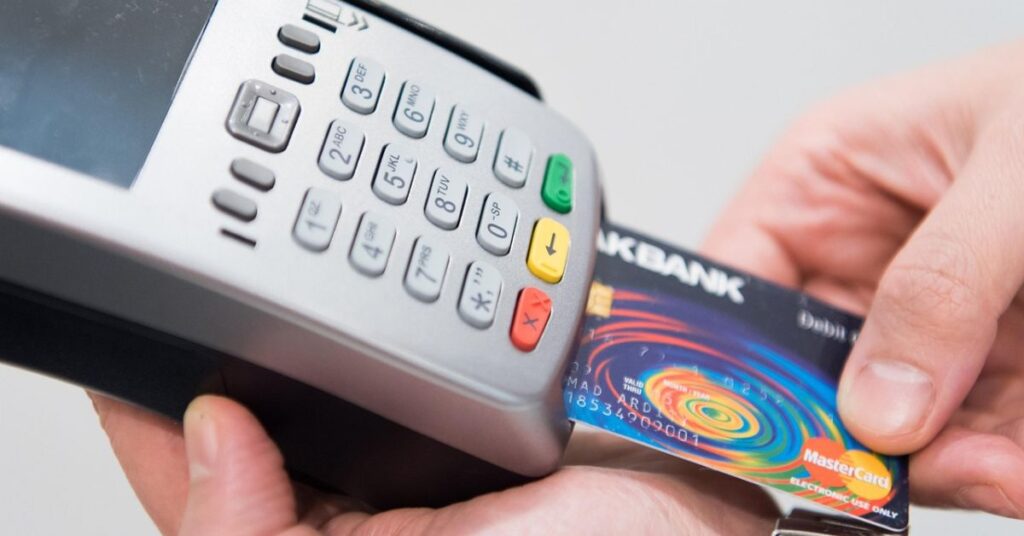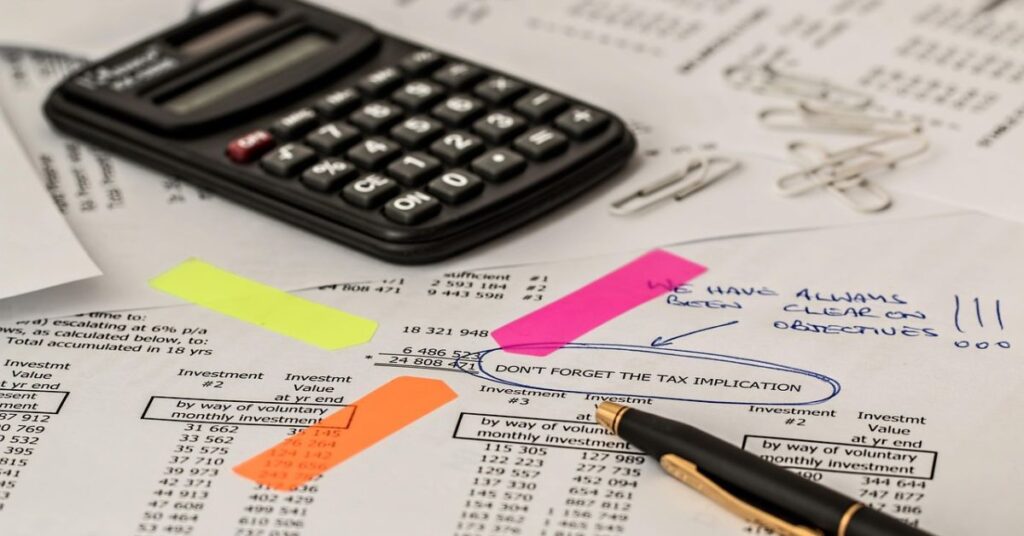Thinking about paying off your mortgage in a decade might sound ambitious, and honestly, it is. But it’s a goal that can seriously change your financial future for the better. Imagine being mortgage-free well before you expected, with a decade or more of your life free from that massive monthly payment. That’s a huge amount of freedom.
Why Learn How to Pay Off Mortgage in 10 Years
The biggest perk? You’ll save a substantial amount on interest over the life of the loan. Think of all the money that would have gone to the bank, now staying in your pocket. This saved money can then be used for other things, like investing, starting a business, or simply enjoying life a bit more. It’s about taking control and building wealth faster.
Here are a few reasons why aiming for a 10-year payoff is a smart move:
- Financial Freedom: Being debt-free offers a sense of security and flexibility that’s hard to beat. You’re not tied down by a 20 or 30-year commitment.
- Interest Savings: The sooner you pay off the principal, the less interest you accrue. This can add up to tens of thousands of dollars saved.
- Increased Net Worth: A paid-off home significantly boosts your personal net worth, giving you a stronger financial foundation.
- Future Opportunities: With no mortgage, you have more capacity to take on other financial goals, like early retirement or significant travel.
While the idea of paying off a mortgage in 10 years is appealing, it requires a clear plan and consistent effort. It’s not just about making extra payments; it’s about a holistic approach to your finances.
It’s a goal that requires discipline, but the rewards are well worth the effort. You’re not just paying off a loan; you’re investing in a future with less financial stress and more opportunities.
Understanding the Benefits of Paying Off Your Mortgage Early
So, you’re thinking about getting rid of that mortgage ahead of schedule. That’s a pretty big financial move, and for good reason. Paying off your home loan faster isn’t just about ticking a box; it actually brings some pretty solid advantages.
First off, and this is a big one, you save a stack of cash on interest. Think about it: the longer you have a loan, the more interest you pay. By shortening that loan term, even by a few years, you can cut down on the total amount you hand over to the bank. Depending on your loan size and interest rate, this saving can be quite significant over time.
Here’s a quick look at what you stand to gain:
- Reduced Interest Payments: The most direct financial benefit. Less time paying means less interest paid overall.
- Faster Equity Growth: Each extra payment you make chips away at the principal, meaning you own a bigger slice of your home sooner. This builds your net worth faster and can give you more options down the line, like borrowing against your home’s value if needed.
- Increased Financial Freedom: Imagine not having that hefty mortgage payment hanging over your head each month. That freed-up cash can be redirected towards other goals, whether it’s saving for retirement, investing, planning a big holiday, or even starting a college fund for the kids.
It’s also worth noting the psychological boost. Being mortgage-free brings a sense of security and peace of mind that’s hard to put a price on. It simplifies your financial life considerably.
While the benefits are compelling, it’s important to ensure you have a solid emergency fund in place before aggressively paying down your mortgage. You don’t want to be caught short if unexpected expenses arise.
How to Pay Off Mortgage in 10 Years with a Solid Financial Plan
Want to knock out your mortgage in a decade? It sounds ambitious, but with a solid financial plan, it’s totally achievable. This isn’t about magic tricks; it’s about smart, consistent effort. The core idea is simple: pay more than the minimum each month. But how do you make that happen without living on instant noodles?
First things first, you need to know exactly where your money is going. A detailed budget is your best friend here. Track every dollar – income, expenses, savings, everything. This helps you spot areas where you can trim back and redirect those funds towards your mortgage principal.
Here are some practical steps to build that plan:
- Know Your Numbers: Get a clear picture of your current mortgage balance, interest rate, and remaining term. Also, understand your monthly income and all your expenses.
- Set a Target: Decide on your 10-year payoff goal. This will help you calculate how much extra you need to pay each month or year.
- Create a Budget: Use a spreadsheet or budgeting app to list all income and expenses. Identify non-essential spending that can be reduced.
- Allocate Extra Payments: Decide how you’ll make extra payments. Will it be a fixed amount each month, or will you use windfalls like tax refunds?
- Review and Adjust: Your financial situation can change. Review your plan regularly (every six months or so) and make adjustments as needed.
The key is making extra payments that go directly towards your principal balance. This is the part of the loan that actually reduces the amount you owe, meaning you’ll pay less interest over time and get out of debt faster.
Consider how different payment strategies can impact your payoff timeline. For instance, making just one extra mortgage payment per year can shave years off your loan. If you can manage it, splitting your monthly payment in half and paying every two weeks (bi-weekly payments) effectively results in 13 full payments a year instead of 12. It sounds small, but the cumulative effect is significant.
A well-structured financial plan acts as your roadmap. It transforms a daunting goal into a series of manageable steps, making the journey towards a mortgage-free life feel less overwhelming and more attainable. Without a plan, good intentions often get lost in the day-to-day.
Don’t forget to factor in potential income increases or unexpected savings. A bonus from work, a tax return, or even selling items you no longer need can all be directed towards your mortgage principal. Every little bit helps accelerate your progress towards that 10-year goal.
The Power of Extra Repayments and How They Work
Making extra payments on your mortgage might seem like a small thing, but it can have a surprisingly big effect over time. It’s all about tackling that principal balance head-on. When you make a regular mortgage payment, part of it goes to interest and part goes to the principal. By paying more than your minimum, you’re sending more money directly towards reducing the amount you actually owe. This means less interest accrues over the life of the loan, and you can shave years off your repayment period.
Think of it like this: the sooner you reduce the principal, the less interest the bank can charge you. It’s a snowball effect, but in a good way. The more you pay down, the less interest you owe, which means even more of your future payments go towards the principal. This is how you can dramatically shorten your mortgage term and save a significant amount of money.
Here are a few ways extra repayments can work for you:
- Regular Additional Payments: Simply add a bit extra to your usual monthly payment. Even $50 or $100 more each month can make a difference.
- Lump Sum Payments: Using windfalls like tax refunds, bonuses, or inheritances to make a one-off, larger payment towards your principal.
- Bi-Weekly Payments: Paying half of your monthly mortgage payment every two weeks. Since there are 52 weeks in a year, this results in 26 half-payments, which equals 13 full monthly payments annually instead of 12.
Let’s look at a quick example to see the impact. Imagine a $300,000 loan at 3.8% interest over 30 years. Your standard monthly payment is about $1,398.
| Payment Strategy | Monthly Payment | Total Interest Paid | Loan Term | Interest Saved | Time Saved |
| Standard | $1,398 | $203,235 | 30 years | $0 | 0 years |
| Extra $100/month | $1,498 | $180,451 | 26 years, 6 months | $22,784 | 3 years, 6 months |
| Extra $250/month | $1,648 | $155,646 | 22 years, 8 months | $47,589 | 7 years, 4 months |
As you can see, even modest extra payments can lead to substantial savings and a much faster payoff. It’s a powerful tool for taking control of your mortgage.
Making extra repayments is a direct way to reduce the total interest you pay over the life of your loan. It’s not just about paying off the debt faster; it’s about paying less for the privilege of borrowing the money in the first place. Every extra dollar applied to the principal works harder for you than it would sitting in a standard savings account.
How to Pay Off Mortgage in 10 Years by Refinancing Smartly
Refinancing your mortgage can be a really effective way to speed up paying it off, especially if you’re aiming for that 10-year goal. It’s basically swapping your current home loan for a new one, hopefully with better terms. The main ways refinancing helps you pay off your mortgage faster are by changing the loan term or getting a lower interest rate.
The most direct way to cut down your payoff time through refinancing is to switch to a shorter loan term. For instance, if you currently have a 30-year mortgage, you might consider refinancing into a 15-year loan. This will definitely mean a higher monthly payment, but you’ll be paying off the principal much faster, and over the life of the loan, you’ll save a significant amount on interest. It’s a big commitment, so you’ll want to be sure your budget can handle the increased payments without causing too much strain.
Here’s a quick look at how a shorter term can impact things:
- Original Loan: $300,000 at 6% interest over 30 years.
- Monthly Principal & Interest: Approximately $1,798.65.
- Total Interest Paid: Around $347,514.
- Refinanced Loan: $300,000 at 6% interest over 15 years.
- Monthly Principal & Interest: Approximately $2,327.14.
- Total Interest Paid: Around $118,865.
See? That’s a massive saving in interest, and you’re done in half the time. Of course, the actual numbers will change based on the interest rate you secure and the exact loan amount.
Another angle is refinancing to snag a lower interest rate. Even if you stick with your original loan term, a lower rate means more of your payment goes towards the principal each month, rather than just covering interest. This can shave off a few years and a good chunk of change from what you owe overall. It’s particularly useful if interest rates have dropped since you first took out your mortgage.
When you’re looking into refinancing, remember there are costs involved, like application fees, appraisal fees, and other closing costs. You need to calculate the ‘break-even point’ – how long it will take for the savings from the new loan to outweigh these upfront costs. A mortgage broker or lender can help you crunch these numbers to see if refinancing makes financial sense for your goal of paying off your mortgage in 10 years.
It’s not just about getting a new loan; it’s about strategically choosing terms that align with your aggressive payoff timeline. Always compare offers from multiple lenders to find the best rate and terms available.
Budgeting Tips to Free Up Cash for Extra Mortgage Payments

Alright, so you’re keen to knock that mortgage over in a decade, which is a fantastic goal. But you might be thinking, ‘Where am I supposed to find the extra cash for those bigger payments?’ It’s a fair question. Most of us aren’t exactly swimming in spare change. The good news is, a closer look at your finances often reveals more room for manoeuvre than you’d expect. It’s all about being a bit more mindful with your money.
First things first, if you’re not already tracking where your money goes, get a budget sorted. Seriously, it’s the bedrock of any financial plan. Once you know your income and your outgoings, you can start spotting those little leaks and areas where you can trim back.
Here are a few practical places to look:
- Groceries: This is a big one for many households. Try planning your meals for the week, sticking to a shopping list, and maybe even exploring cheaper supermarkets or buying more in-season produce. Little changes here can add up.
- Eating Out and Takeaways: It’s easy to let this creep up. Cooking at home just a couple more times a week can save a surprising amount. Think about packing lunches for work or making a bigger dinner that you can have leftovers from the next day.
- Subscriptions: We all have them – streaming services, apps, maybe even a gym membership you don’t use much. Go through them with a fine-tooth comb and cancel anything you can live without. That monthly fee might not seem like much, but it’s money that could be going straight to your mortgage.
- Insurance: Have you shopped around for your home or car insurance lately? Prices can change, and you might be able to find a better deal with a different provider. It’s worth getting a few quotes.
Sometimes, the biggest financial wins come not from earning more, but from spending less on things that don’t truly add value to your life. Redirecting those savings, even small amounts, towards your mortgage principal can make a massive difference over time.
Another smart move is to redirect any unexpected windfalls. Got a tax refund, a bonus at work, or a cash gift? Instead of letting lifestyle creep kick in and spending it on something new, put it straight towards your mortgage. Treating extra income as an opportunity to accelerate your debt repayment is a powerful strategy. It might feel like you’re missing out on a treat in the short term, but the long-term payoff of being mortgage-free sooner is well worth it.
Common Mistakes to Avoid When Trying to Pay Off Mortgage Early
So, you’re keen to get rid of that mortgage faster, which is fantastic! But before you go all-in, let’s chat about a few pitfalls that can trip people up. It’s easy to get excited and make some choices that, in hindsight, might not have been the smartest.
One biggie is not having a solid emergency fund in place. Imagine you’re smashing your mortgage payments, then BAM! Your car breaks down, or you have an unexpected medical bill. If you don’t have savings to cover it, you might have to dip into your mortgage payment money or even take on new, high-interest debt. Always make sure you’ve got at least three to six months of living expenses tucked away before you start aggressively paying down your home loan.
Another common slip-up is ignoring other high-interest debts. You might be focused on the mortgage, but if you’ve got credit cards or personal loans with interest rates way higher than your mortgage, you’re likely losing money overall by not tackling those first. It’s like trying to bail out a sinking boat with a leaky bucket – you’re not being as efficient as you could be.
Here are a few other things to watch out for:
- Not checking for prepayment penalties: Some loan agreements have fees if you pay off chunks of your mortgage early. Always read the fine print or give your lender a call.
- Applying extra payments incorrectly: If you just send in more money without specifying, your lender might just put it towards your next scheduled payment, not the principal. Make sure you clearly state that the extra amount is for the principal.
- Overlooking investment opportunities: While paying off your mortgage is great, sometimes the returns you could get from investing that money elsewhere might be higher over the long run. It’s a balancing act.
- Getting caught by ‘accelerator’ programs: Some companies offer services to help you pay bi-weekly or manage extra payments. Often, you can do this yourself for free by simply making an extra full payment once a year or splitting your monthly payment in half and paying every two weeks.
It’s tempting to throw every spare cent at the mortgage, but a balanced approach is usually best. Think about your overall financial health, not just the mortgage balance. Having some flexibility and not being completely cash-strapped is important for peace of mind.
Finally, don’t forget to actually tell your lender how you want your extra payments applied. A simple note on your payment or a quick call can save you a lot of confusion and ensure your money is working as hard as possible to get you mortgage-free sooner.
Staying Motivated on Your Journey to Pay Off Mortgage in 10 Years
Sticking to a plan to pay off your mortgage in a decade can feel like a marathon, not a sprint. There will be days when you question the sacrifices, especially when unexpected expenses pop up or when you see friends enjoying holidays you’ve had to skip. Keeping that fire lit is absolutely key.
One of the best ways to stay motivated is to visualise your progress. Seeing how much closer you are to being mortgage-free can be a powerful driver. Consider using a mortgage payoff calculator regularly; these tools can show you the impact of your extra payments in real-time, illustrating the interest saved and the years shaved off your loan. It makes the abstract goal feel much more tangible. For instance, seeing that a consistent extra $200 a month could save you tens of thousands in interest and cut years off your loan is pretty eye-opening.
Here are a few strategies to keep your spirits high:
- Celebrate Milestones: Don’t wait until the very end to acknowledge your wins. Paid off a significant chunk? Hit a certain percentage? Treat yourself (within reason, of course!) to something small that reinforces your commitment.
- Find a Support System: Talk to your partner, friends, or even online communities who are on a similar path. Sharing challenges and successes can make the journey feel less isolating.
- Revisit Your ‘Why’: Remind yourself regularly why you started this in the first place. Is it for financial freedom? To have more disposable income for travel or hobbies? To leave a legacy? Keeping your core motivation front and centre helps.
- Visual Aids: Print out a chart or use an app that tracks your progress. Seeing that balance decrease week by week can be incredibly encouraging.
It’s easy to get discouraged when the finish line seems far away. Remember that every extra payment, no matter how small, is a step in the right direction. Focus on the progress you’ve made, not just the distance yet to travel. Small, consistent efforts compound over time, leading to significant results.
Don’t forget to review your budget periodically to ensure it still aligns with your goals. Sometimes, tweaking your spending or finding new ways to boost income can reignite your enthusiasm. If you’re looking for tools to help map out your accelerated payoff, exploring options like a mortgage payoff calculator can provide clarity and renewed focus.
Paying off your mortgage in 10 years is a big goal, but totally doable! Keeping your spirits up is key. Think about how great it will feel to be mortgage-free sooner rather than later. Celebrate small wins along the way – maybe a fancy coffee when you hit a milestone! For more tips on staying motivated and making your dream a reality, check out our website.
Frequently Asked Questions
What is the main idea behind paying off a mortgage faster?
The main idea is to pay off the original amount you borrowed (the principal) quicker than the loan agreement says. By doing this, you end up paying much less interest over the years and become debt-free sooner. It’s like finishing your homework early to have more free time!
How do bi-weekly payments help pay off a mortgage faster?
Instead of paying your mortgage once a month, you pay half of your monthly payment every two weeks. Since there are 52 weeks in a year, this means you make 26 half-payments, which adds up to one extra full monthly payment each year. This extra payment goes straight to your principal, helping you pay off the loan faster.
Can refinancing my mortgage help me pay it off in 10 years?
Yes, refinancing can be a smart move. If you switch your current loan to a new one with a shorter term, like a 15-year loan instead of a 30-year loan, you’ll pay it off much faster. Just be aware that your regular payments might be higher, so make sure your budget can handle it.
What are ‘extra repayments’ and how do they work?
Extra repayments are any extra money you put towards your mortgage beyond your regular monthly payment. This could be from a tax refund, a bonus, or just savings you’ve put aside. When you make an extra repayment, it usually goes directly to reduce your loan’s principal, which saves you money on interest and speeds up your payoff.
What’s the difference between paying interest and paying principal?
Think of your mortgage like a pie. The principal is the biggest slice – the actual amount you borrowed to buy your home. The interest is like a smaller slice that the bank charges you for lending you the money. When you pay extra towards your mortgage, you want that money to go towards the principal slice, as this reduces the total amount you owe and the interest you’ll pay later.
Are there any downsides to paying off my mortgage early?
While paying off your mortgage early is generally a good thing, there are a few things to consider. You might miss out on earning more money if you invested that cash instead. Also, check if your loan has any fees for paying it off too soon. It’s always a good idea to weigh the benefits against these potential drawbacks.











